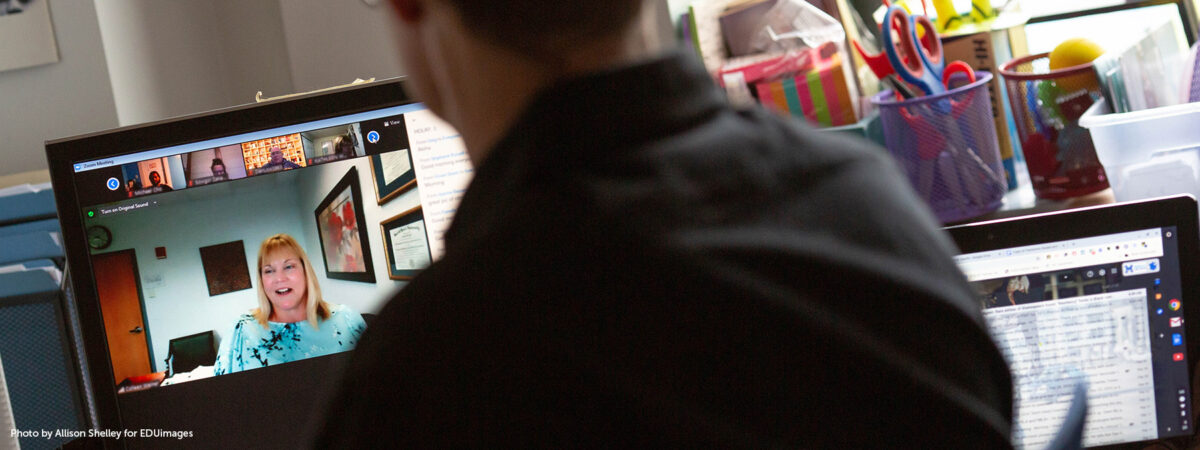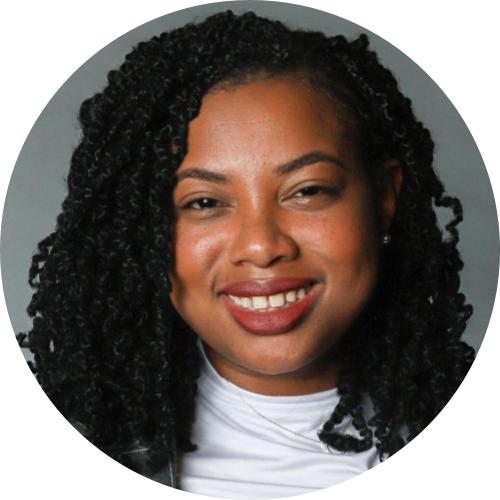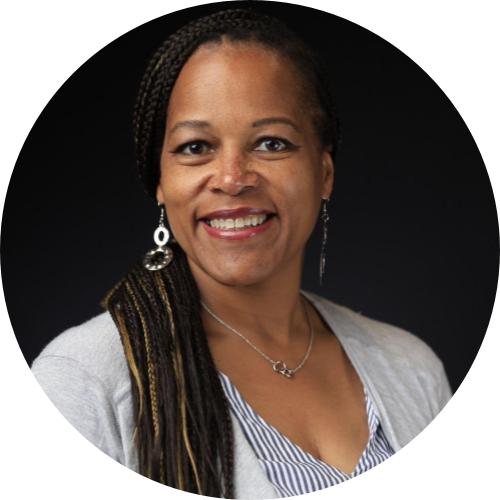
Attendees had the opportunity to learn about the latest educational trends, emerging technologies, and innovative strategies shaping education directly from education and edtech experts like 2022 Hawai’i State Teacher of the Year Whitney Aragaki; Hey, Mrs. Bond founder Chanea Bond; MrDearybury.com Director of Creativity Jed Dearybury; The Limitless Leader founder and CEO Dr. Mary Hemphill; Common Ground Foundation president and co-founder Dr. Mahalia Hines; and Cincinnati Public Schools interim principal Crystal M. Watson.
Three educators who spent the day with us reflected on their takeaways and shared how they are applying their learnings in the classroom:

I expected Elevating Innovation to be about how to use or consider using technology in schools and was looking forward to it as a new technology academic coach. However, what I experienced was far different and far better: It put people at the center of the technology and helped me expand my views on how technology can and should be used in school settings as a tool for education and not as a replacement or goal of education.
One of the central ideas was about keeping the human in the work: Technology skills are critical skills, but we need to keep in mind that technology has its role and place but it should not replace the teacher. We use technology as a tool to teach and learn.
Another workshop discussed the productiveness of failure. We learn from trial and error; “to err is human,” after all, so why not learn that way? This is a key idea of playing games: We fail, we lose, and we learn to do better.
I was already reflecting on my role as a coach and how I can combine the ideas of humanizing education and learning from making mistakes as I joined the final workshop of the day, “Building Community in Our Shared Places.” Dr. Whitney Aragaki placed the land, those who came before us, and those who are here now into a context of communities and asked what is our role in the community and our school. As someone who just moved more than a hundred miles for a new position, it hit home deeply and gave me more to ponder. We (staff and students) are all part of this community—a community of human learners, a community who should not be afraid to make mistakes, but rather find joy and knowledge in them, learn from them, and learn from those who came before us.
This was not what I originally expected from a technology conference, but it was what I needed.

The Elevating Innovation Virtual Conference reminded me of the power of storytelling and the importance of failing forward. In the session, “What Happened When I Tried to Ban AI in My Classroom,” Chanea Bond shared her journey of navigating artificial intelligence (AI) integration in her classroom. Initially, her attempts to use AI didn’t yield the desired results but instead highlighted how the education system can sometimes devalue students’ voices, which led her to ban AI utilization. By taking risks, she challenged herself to rethink how to inspire students to learn content while expressing authenticity in their writing.
This session deeply resonated with me as a coach. It reinforced the importance of encouraging teachers to fail forward. In my coaching sessions, I now prioritize listening, encouraging reflection, and reminding teachers that their work is a journey. This mindset fosters authentic refinement and supports diverse learning styles.
Educators need to engage with content like this because the fast pace of school culture often distracts us from what truly matters: empowering student learning. By grappling with AI’s role in education, Chanea’s students not only found their voices but also built a stronger foundation for authentic expression.
I appreciated Elevating Innovation’s virtual format, which allowed me to explore topics that truly resonated with me. The convenience of viewing recorded sessions ensured I didn’t miss valuable insights due to scheduling conflicts. This accessibility made the event not only informative but also practical for busy educators.

Attending the Elevating Innovation Virtual Conference was an incredibly enriching experience. Even in this virtual format, I was able to connect with fellow educators from across the country through the chat feature, which broadened my perspectives.
I was particularly impressed by Chanea Bond’s session, “What Happened When I Tried to Ban AI in My Classroom.” Her insights on empowering students to find and value their voices in the age of AI were truly inspiring. One key takeaway I’ve implemented in my practice as a result is a renewed focus on student voice and agency. I’m actively exploring ways to leverage AI tools to amplify, rather than replace, student voices. This includes encouraging creative expression through AI-powered writing and design projects while emphasizing critical thinking and ethical considerations. By framing AI as a tool for empowerment, I aim to help educators and students confidently navigate the digital world.
Watch the recordings of all Elevating Innovation sessions on Verizon Innovative Learning HQ and stay tuned for information about next year’s virtual conference.